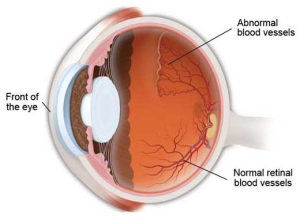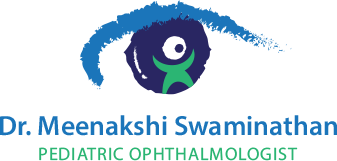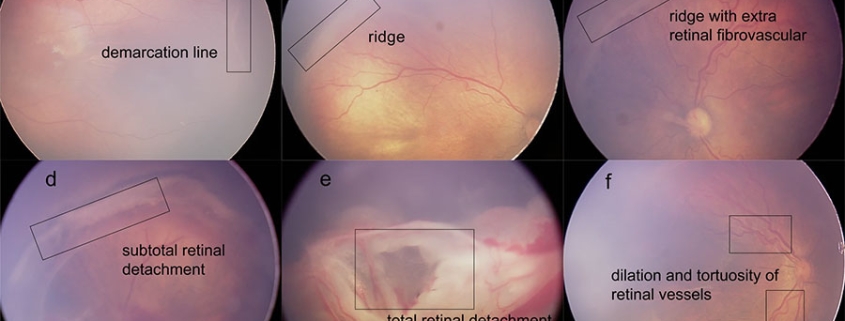Retinopathy and risk of blindness in premature infants
Photo Credit: Eye and Vision
In the last few decades we have made huge strides in the care of the prematurely born child. The field of Neonatology, which deals with problems of the new-born has indeed grown in its depth and scope. Problems related to vision and eyes can occur in these premature children too. Timely recognition is critical in these fragile infants to save vision. This article takes a look at the types of conditions that are special to children born premature.

Picture Credit: South Bay Ophthalmology
Retinopathy of Prematurity (ROP): A child who is born before 36 weeks of gestation and/or has low birth weight is at risk for developing ROP. The risk for developing ROP is calculated based on certain criteria decided upon by an international group of experts. The risk is higher if this child also develops other systemic complications and has to be treated in the NICU for long periods
Retinopathy and risk of blindness in premature infants; the importance of very early screening in the days after birth to avoid serious long-term vision impairment.
The premature baby’s retina is not fully developed. There are several areas of the retina where the normal blood vessels have not grown into. The body senses this and sends out special chemicals (Vascular endothelial growth factor or VEGF). These aid in abnormal proliferation of vessels in the retina which may lead to traction and detachment of the retina. The only way to pick up the presence of these new vessels is to screen for them. This screening is mandatory and has to be done in a timely fashion. Treatment can prevent the child from going blind. Screening is usually done by an ophthalmologist who has been trained specially in ROP screening. Tele screening done by trained technicians who relay the images captured in a special camera, is also another model very useful in remote areas. These images are then looked at by the ophthalmologist who decides which baby needs treatment for ROP.
Children who are born premature have a higher risk of developing high myopia, and squint. Those who have had other systemic issues and needed oxygenation and ventilator support may also have cerebral visual impairment. These children need to be monitored closely for vision issues for the first 5 years of life.
If you know anyone who has had a baby born prematurely, ensure that the child undergoes ROP screening within 4 weeks of birth or even earlier. These screenings can be done even if the baby is in the NICU. Let us not forget this important cause of treatable blindness as more and more children born prematurely now survive due to better neonatal care.



